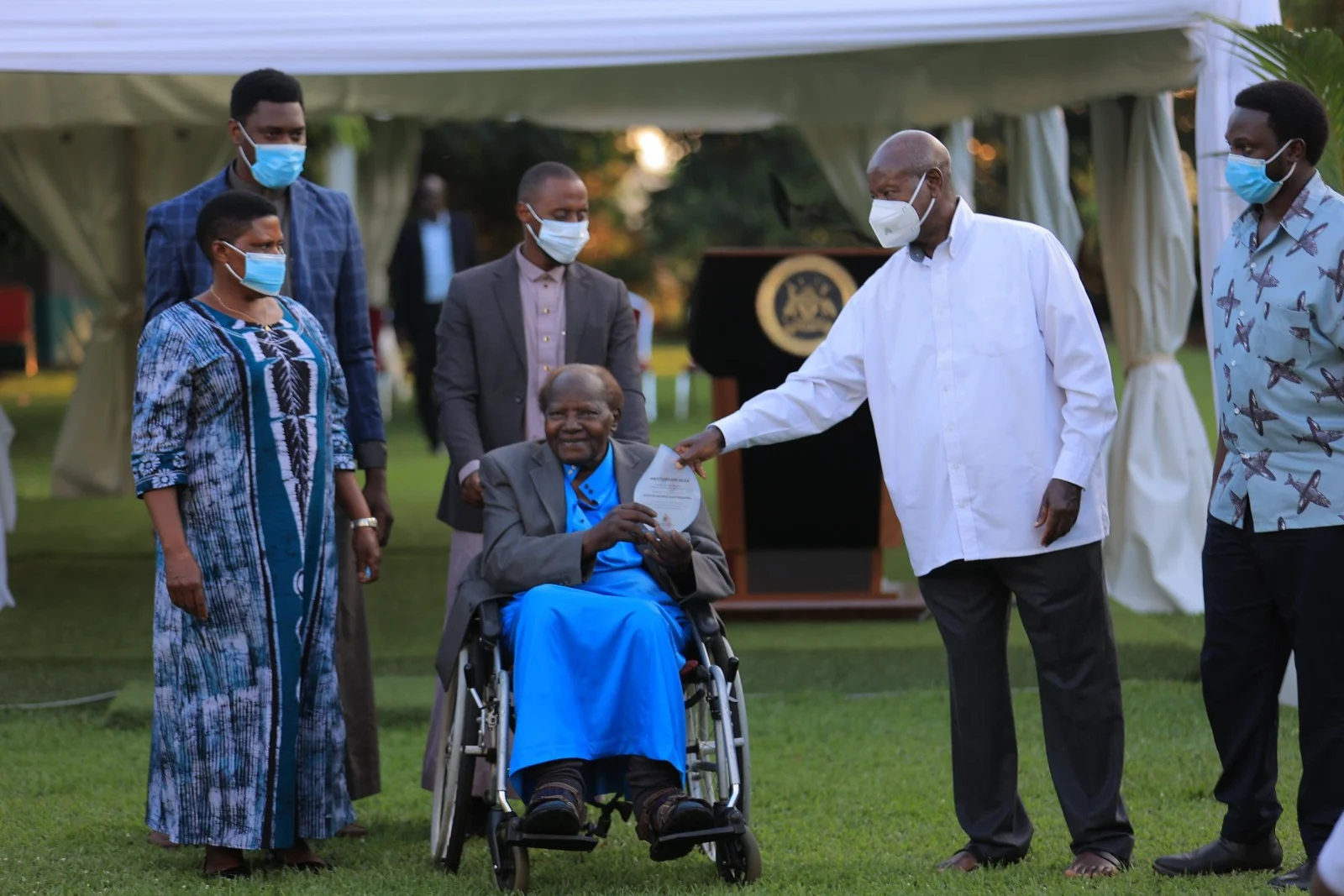Museveni Mourns Prof Kanyeihamba

President Museveni has expressed deep sorrow following the passing of retired Supreme Court Justice Professor George Wilson Kanyeihamba, hailing him as a “patriotic intellectual” who served Uganda with distinction across multiple domains.
Prof Kanyeihamba died early Monday morning at a Kampala hospital, after years of recurring illness. He was 86.
In a statement issued on Sunday, Museveni reflected on their earliest meeting at a landmark debate between two towering African scholars—Prof Ali Mazrui and Dr Walter Rodney—held at Makerere University in the 1970s.
He recalled Rodney’s sharp rebuttal to Mazrui’s remarks on neocolonialism, a moment that left an impression on many of the young intellectuals present, including Kanyeihamba.
"I remember first meeting Professor Kanyeihaamba, I think, at the historic debate between Prof Mazrui and Dr Rodney at Makerere University," he said.
Dr Rodney was a renowned Guyanese historian, political activist, and Pan-Africanist. He's best known for his seminal 1972 book, How Europe Underdeveloped Africa, which had a significant impact on post-colonial African thought.
That famous debate took place in the late 1960s at Makerere University, where both men were part of the broader intellectual and ideological ferment around African independence, neo-colonialism, and development.
Mazrui, a Kenyan political theorist, was seen as more liberal and pragmatic in his approach to African politics, while Rodney was a revolutionary Marxist and outspoken critic of global imperialism.
"This is when Prof Mazrui, in his remarks, said that he was not in “conflict” with Dr Rodney, whereupon Rodney said that they cannot be in “conflict” because they were not even in “touch”.
Museveni said Rodney meant Mazrui was talking about neo-colonialism while he was talking about real independence.
“After that debate, I next met Kanyeihamba in the UK as part of our external committee during the 1981–1986 war,” Museveni said.
Following the war, Kanyeihamba served in the NRM government, holding key cabinet roles including Minister of Commerce, Minister of Justice and Constitutional Affairs, and Attorney General.
He later entered the judiciary, serving on the Supreme Court from 1997 until his retirement in 2009.
“I salute his contribution to Uganda and to the NRM over the years. Condolences to his family and friends. May his soul rest in eternal peace,” Museveni said.
Architect of Uganda’s Modern Constitution
Born in 1938, Prof. Kanyeihamba was instrumental in shaping Uganda’s post-independence legal framework.
He chaired the Legal Committee of the Constituent Assembly that drafted the landmark 1995 Constitution, and was widely respected as a symbol of judicial independence.
His legal career reached a critical turning point in 2006 when he was one of three justices who dissented in a Supreme Court ruling that upheld President Museveni’s re-election.
He argued that the poll had been marred by serious irregularities.
Many observers later linked that dissenting opinion to his removal from the African Court on Human and Peoples’ Rights, where he had also served as a judge.
Despite such setbacks, Kanyeihamba remained an unwavering voice in defence of justice.
A prolific writer and legal scholar, he authored several widely cited works, including Constitutional and Political History of Uganda: From 1894 to the Present and Kanyeihamba’s Commentaries on Law, Politics and Governance.
He earned his PhD in law from the University of Warwick, which in 2008 awarded him an honorary Doctor of Laws (LLD).
Even after retiring from the bench, he continued to write, mentor, and challenge the political establishment.
His public commentaries—often sharp, provocative, and rooted in constitutionalism—earned him both admirers and critics.
Among his most quoted teachings to young lawyers was a line that summed up his career-long philosophy: “A judge must never fear to speak truth to power. The moment you do, you cease to be a judge.”
Prof Kanyeihamba is survived by his widow Susan and three children.



0 Comments